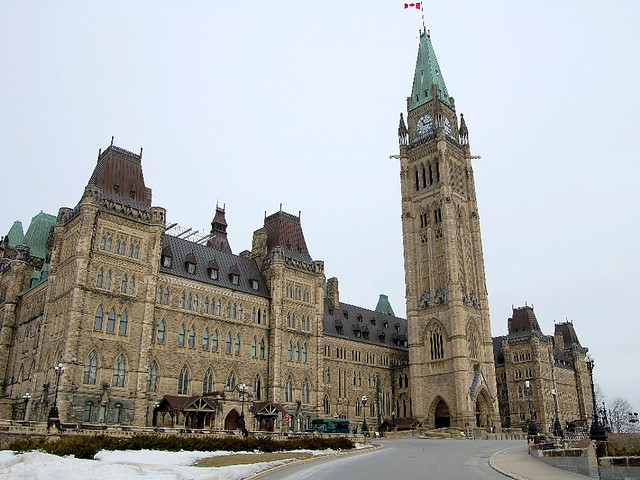Though there was virtually no media attention paid to it, the House of Commons recently featured an interesting debate on climate change. NDP, Liberal, and Conservative MPs weighed in on the NDP’s private members bill, the Climate Change Accountability Act.
The proposed Act sets Canadian targets for carbon emission reductions for 2025 and 2050 that are in line with what the science says is necessary to avoid the worst climate change impacts. In the short-term, Canada must reduce emissions by one-third (34 per cent to be exact) over the next 10 years.
Just as importantly, the Act would mandate accountability measures: Cabinet must develop a plan to meet those targets (and others set in five-year periods). Every year the environment minister must report to Parliament on the government’s activities to address carbon pollution. And every two years the environment commissioner must assess the government’s progress and provide recommendations. These measures are crucial given that Canadian governments have always been much better at setting carbon pollution targets than actually meeting them. In just the most recent example, the current federal government is on track to miss its 2020 carbon reduction target by a mile.
This version of the Act is modeled on one by the same name that was passed by the House of Commons in 2010 and killed in the Senate. (It may have been the first time in Canadian history that the unelected senate voted down a bill passed by the House before it was even debated.)
What the recent House debate revealed is that, like the 2010 bill, the new Climate Change Accountability Act was supported by all opposition parties. Matthew Kellway, the NDP MP who sponsored the bill, has been calling it Jack Layton’s bill, likely because of Layton’s popularity and how much political capital he invested in the 2010 version. Liberal environment critic John McKay supported the bill on behalf of his party, saying the bill showed “a seriousness on the part of some parliamentarians to actually deal with what many say is the existential threat of our time.” The Green Party has also expressed its support.
The government, meanwhile, made the same nonsensical argument it has been making for years. Colin Carrie, the parliamentary secretary to Canada’s environment minister, implied that the only way to significantly reduce emissions is to shut down major parts of the economy. It’s like members of the federal government have never seen a windmill, heard of electric cars, or understood the incredible energy and money that can be saved by investments in energy efficiency.
Nonetheless, the fact that opposition parties are not only agreeing on action on climate change, but the short-term targets and measures that are needed, is a big step in the right direction. Given that there will be a federal election this fall and the United Nations climate change summit in Paris in December looms immediately afterward, this is not the last time we will hear a debate about what federal politicians will do to tackle climate change and the carbon pollution that causes it.
We just hope that debate turns into action.



